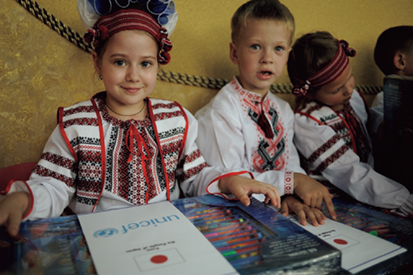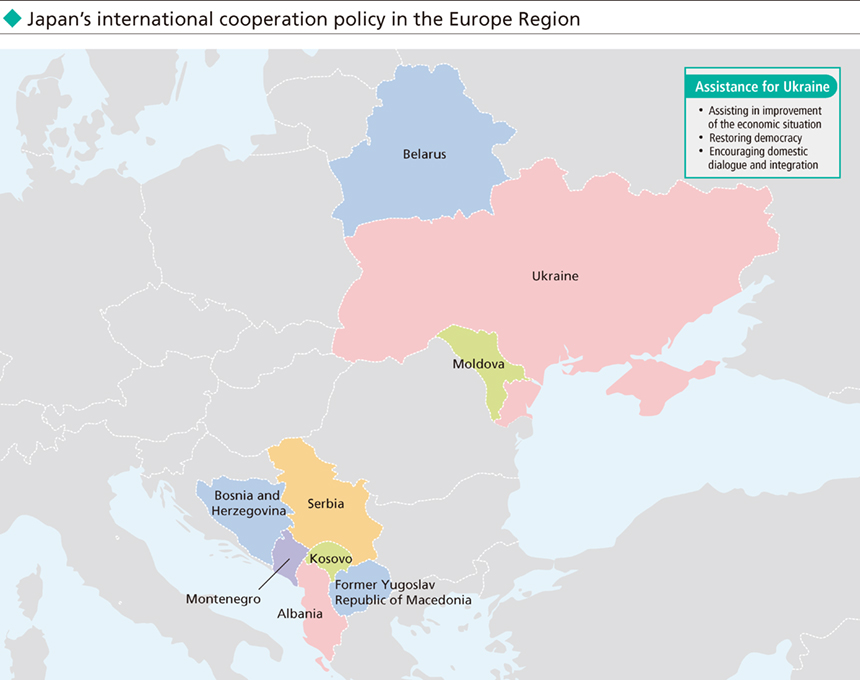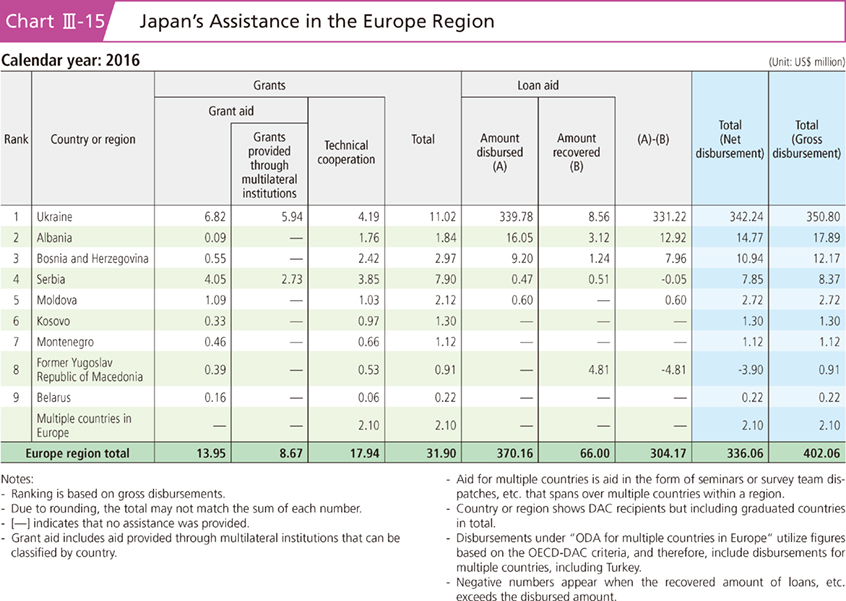8. Europe
Many countries in Central and Eastern Europe and the European regions of the former Soviet Union that had previously been under communist regimes have subsequently achieved democratization and liberalization. They are currently pursuing economic development based on market economies under democratic administrations. Japan has provided assistance to these regions for efforts such as the transition to market economies, reconstruction of economic infrastructure, and addressing environmental issues. The aim is to further promote stability and development in these regions and in Europe as a whole, as well as to further strengthen relationships based on shared universal values (such as human rights, democracy, market economy, and rule of law, etc.).
<Japan's Efforts>
Reforms had once slowed in the Western Balkans(Note 13) due to the conflicts which occurred in the 1990s. However, assistance from donor countries and international organizations, as well as their own efforts for reform, have enabled them to graduate from the stage of receiving aid for reconstruction. Currently, they are at a stage where they require assistance aimed at sustainable economic development. Japan has provided development cooperation based on the three main pillars of “consolidation of peace,” “economic development,” and “regional cooperation” as its priority areas, which were confirmed at the Ministerial Conference on Peace Consolidation and Economic Development of the Western Balkans jointly held by Japan and the EU in 2004. Japan continues to provide assistance especially for the “promotion of sustainable economic growth” as its priority policy in developing countries in the Western Balkans.
Ukraine and Moldova, part of the former Soviet Union, are geopolitically important since they are located between Russia and the EU. The stability and sustainable development of these countries are indispensable for the stability of Europe as a whole. Assistance in their efforts to consolidate democracy and establish market economies is needed. In response to the worsened situation in Ukraine since 2014, Japan announced assistance amounting to approximately $1.86 billion, which is one of the largest scales on an individual country basis. As such, Japan is providing support for Ukrainian reforms in the areas of health and medical care, recovery of democracy, finance, and basic economic infrastructure. Moreover, Japan is steadily implementing assistance to Eastern Ukraine where the situation has been worsened. This support is aiming at improving water and hygiene conditions, providing shelter for IDPs and others, repairing social care institutions for the most vulnerable groups such as children, women, the disabled, and the elderly. Japan also assists in removing landmines and repairing housing. In addition to the provision of funds, Japan is implementing support for democratization including assistance for administrative and financial reforms, anti-corruption measures, and the media through technical cooperation.
In light of disparities in economic development in Europe, Japan gradually reduces assistance to EU member countries, deeming them as having graduated from ODA, and encourages them to become donors to more actively provide development cooperation to developing countries in Europe. Regardless whether the country is receiving aid or not, Japan focuses more on results, and provides effective and efficient aid by utilizing Japan's knowledge and experience, while paying attention to the activities of other donor countries and international organizations.

Children receiving educational supplies at Kindergarten No.43 in Mykolaivka located in Donetsk, Ukraine in August 2016. The supplies were provided through UNICEF funded by Japan's support for the recovery of eastern Ukraine. (Photo: UNICEF Ukraine)


- Note 13: Western Balkans: Albania, Bosnia and Herzegovina, Croatia, Former Yugoslav Republic of Macedonia, Kosovo, Montenegro, and Serbia (Croatia has graduated from ODA as it has become a member of the EU).
